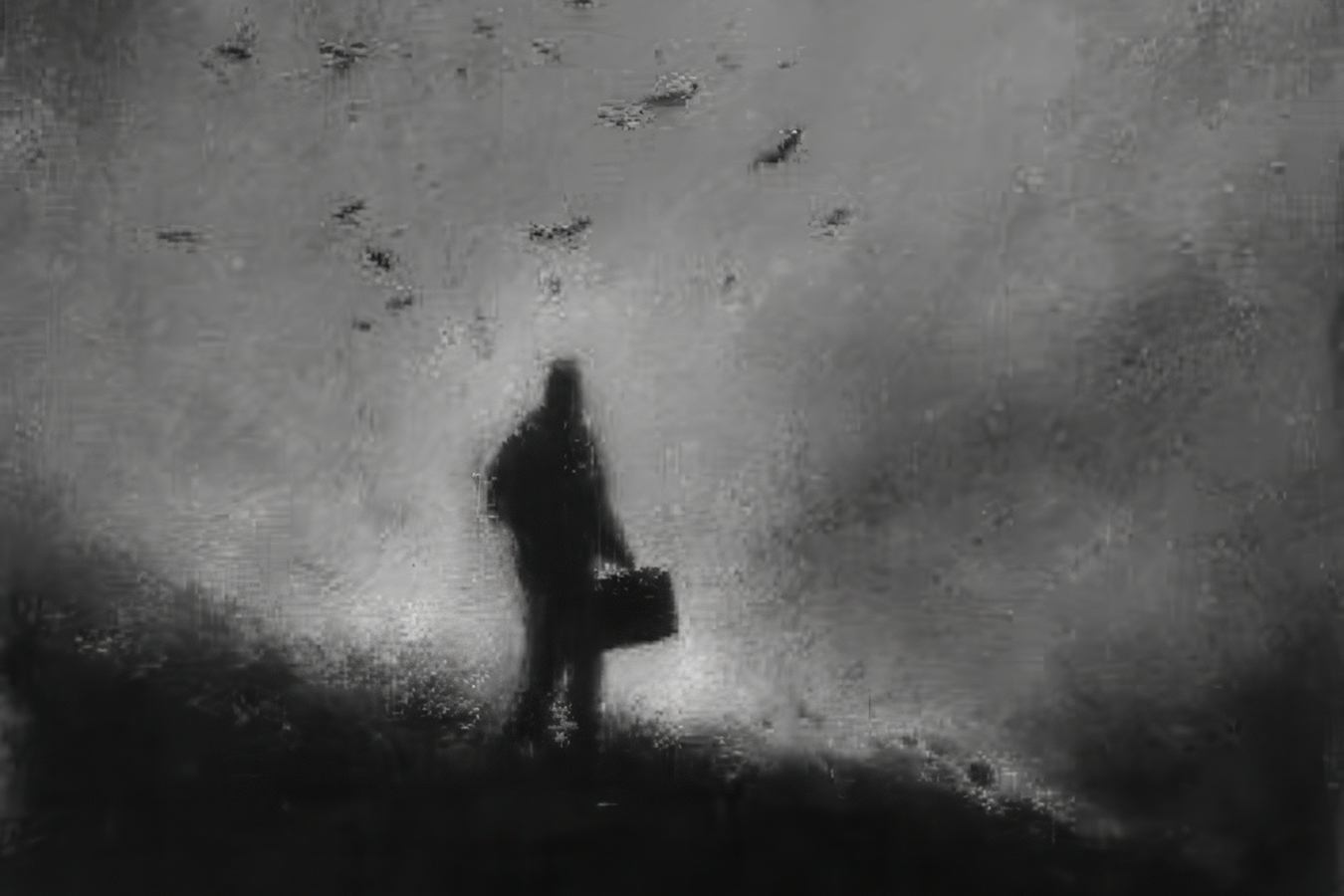Hollow
What the Forest Remembers
There’s a particular silence in the northern woods that never really leaves you. It settles beneath the bark, between the moss and stones, in the way the fog hangs low over the hills. It’s not empty. It’s memory.
When I started writing Static Between the Trees, I didn’t set out to write about Michigan’s Upper Peninsula, or the forgotten trails north of Escanaba, or the cedar swamps that bleed into the edges of small towns. But the places you grow up with, the ones that unsettled you as a kid, have a way of creeping onto the page whether you invite them or not.
Static Between the Trees isn’t set in a real place. But it remembers one.
The collection leans on fragments of real landscapes: the shadowed hollows off county roads, the sharp smell of pine and cold earth, the stagnant black water pooled under cedar roots. Growing up around these places taught me early that beauty and unease are often tangled together.
Memory works like that, too. It never leaves you whole. It comes back in pieces... the soft snap of a branch underfoot, the hush that falls when snow mutes the world, the eerie stillness of a lake at dusk.
The stories in Static are fiction, but they owe their bones to those woods and waters of the North. To the houses on the outskirts of forgotten towns. To the unsettling quiet that settles in after the last tourist leaves for the season.
Where I grew up, the towns aren’t ghost towns, but they feel like they could be, given time. The diner still serves coffee. The hardware store still stocks nails and fishing lures. But the woods are always just a few steps away, waiting. And it’s in that space, in the tension between the ordinary and the unknown, that Static Between the Trees lives.
I’ve always believed that place is a character and sometimes louder than the people. And in these stories, the forests remember what we forget. The land holds onto grief, love, and fear long after we've convinced ourselves we’ve let go.
The idea of memory stored in the land isn’t new. Folklore clings to places the way moss clings to fallen logs. You hear it in old family stories, whispered warnings, and the names of roads no one seems to use anymore.
When I visit the Upper Peninsula now, or drive those quiet back roads near Lake Michigan’s northern edge, it feels unchanged, but also heavier. Like the woods have gathered everything we’ve left behind and kept it. Loss. Joy. Regret. It all stays, tucked beneath the canopy.
And the stories I write? They borrow from that quiet weight. They carry shadows from those woods.
So, when you read these stories, know the trees, the fog, the brittle light... those aren’t inventions. They’re memories reshaped, shadows pulled from the real woods that shaped me.

